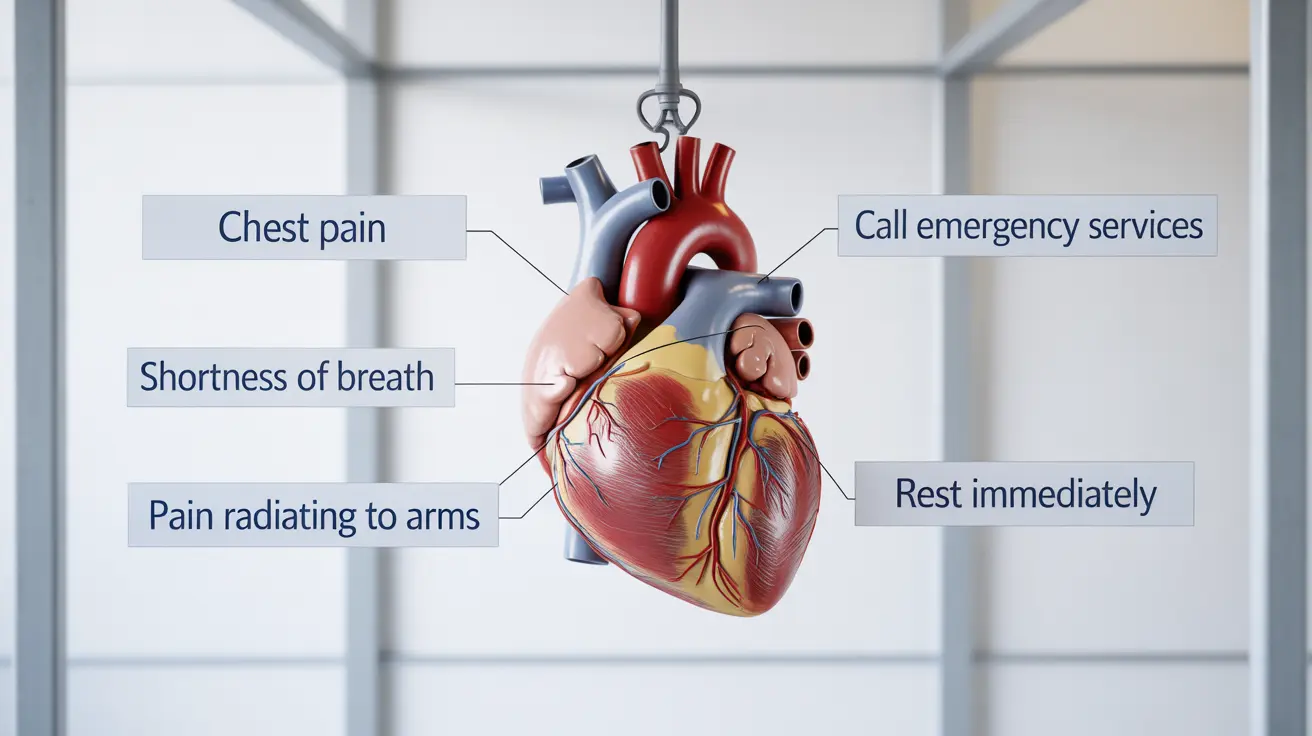Understanding the signs of a heart attack and knowing when to seek immediate medical attention can be the difference between life and death. While there's no reliable way to definitively test for a heart attack at home, recognizing key warning signs and taking swift action is crucial for survival and recovery.
This comprehensive guide will help you understand heart attack symptoms, gender-specific differences in presentation, and the critical steps to take if you suspect someone is experiencing a heart attack. Remember: when in doubt, seeking immediate medical attention is always the safest choice.
Critical Warning Signs of a Heart Attack
Heart attacks often present with several distinctive warning signs that shouldn't be ignored. The most common symptoms include:
- Chest pain or pressure (feeling like squeezing or fullness)
- Pain radiating to arms, neck, jaw, or back
- Shortness of breath
- Cold sweats
- Nausea or vomiting
- Unusual fatigue
- Lightheadedness or dizziness
It's important to note that these symptoms can develop suddenly or gradually over hours or days. Don't wait to see if symptoms improve on their own – immediate medical attention is essential.
Gender Differences in Heart Attack Symptoms
Common Symptoms in Men
Men typically experience more "classic" heart attack symptoms, including:
- Severe chest pain or pressure
- Pain in the left arm
- Breaking out in a cold sweat
- Jaw pain
Common Symptoms in Women
Women often experience less typical symptoms, which can include:
- Subtle chest discomfort rather than obvious pain
- Upper back or shoulder pain
- Unusual fatigue
- Nausea and vomiting
- Shortness of breath without chest pain
- Dizziness or lightheadedness
Immediate Actions for Suspected Heart Attack
If you or someone else shows signs of a heart attack, take these immediate steps:
- Call emergency services (911) immediately
- Chew and swallow an aspirin (if not allergic)
- Sit or lie down and try to remain calm
- Unlock the door if alone to allow emergency responders entry
- Have someone stay with you until help arrives
Why Professional Medical Care is Essential
While it's natural to want to confirm a heart attack at home before seeking help, this approach can be dangerous and potentially fatal. Emergency medical professionals have specialized equipment and training to properly diagnose and treat heart attacks, including:
- EKG monitoring
- Blood tests for cardiac markers
- Immediate access to life-saving medications
- Advanced cardiac care facilities
- Trained medical staff for emergency interventions
Frequently Asked Questions
Can I test for a heart attack at home before going to the hospital?
No, there is no reliable way to test for a heart attack at home. If you suspect you're having a heart attack, call emergency services immediately. Any delay in seeking professional medical care can increase the risk of severe damage or death.
What are the most common warning signs of a heart attack I should watch for?
The most common warning signs include chest pain or pressure, shortness of breath, pain radiating to the arms or jaw, cold sweats, nausea, and unusual fatigue. These symptoms can vary in intensity and combination.
How do heart attack symptoms differ between men and women?
Men typically experience more "classic" symptoms like severe chest pain, while women often have more subtle signs like fatigue, nausea, shortness of breath, and back or jaw pain. Women are more likely to dismiss their symptoms, which can lead to dangerous delays in treatment.
What should I do immediately if I suspect someone is having a heart attack?
Call 911 immediately, have the person sit or lie down, give them an aspirin if available and not contraindicated, and stay with them until emergency help arrives. Quick action is essential for survival.
Why is it dangerous to rely on self-diagnosis or at-home tests for a heart attack?
Self-diagnosis can lead to dangerous delays in receiving proper medical care. Only medical professionals have the necessary equipment and expertise to properly diagnose and treat a heart attack. Every minute of delay can result in more heart muscle damage.




